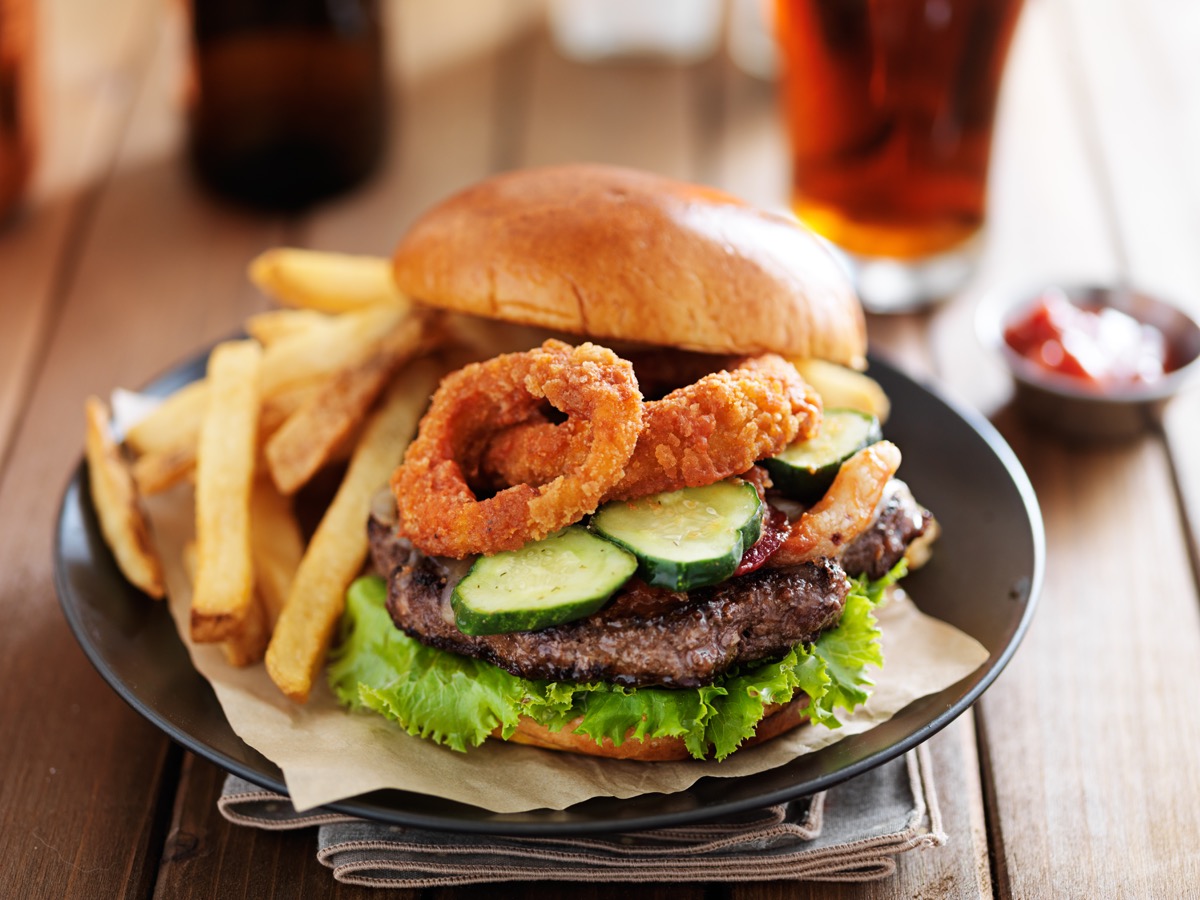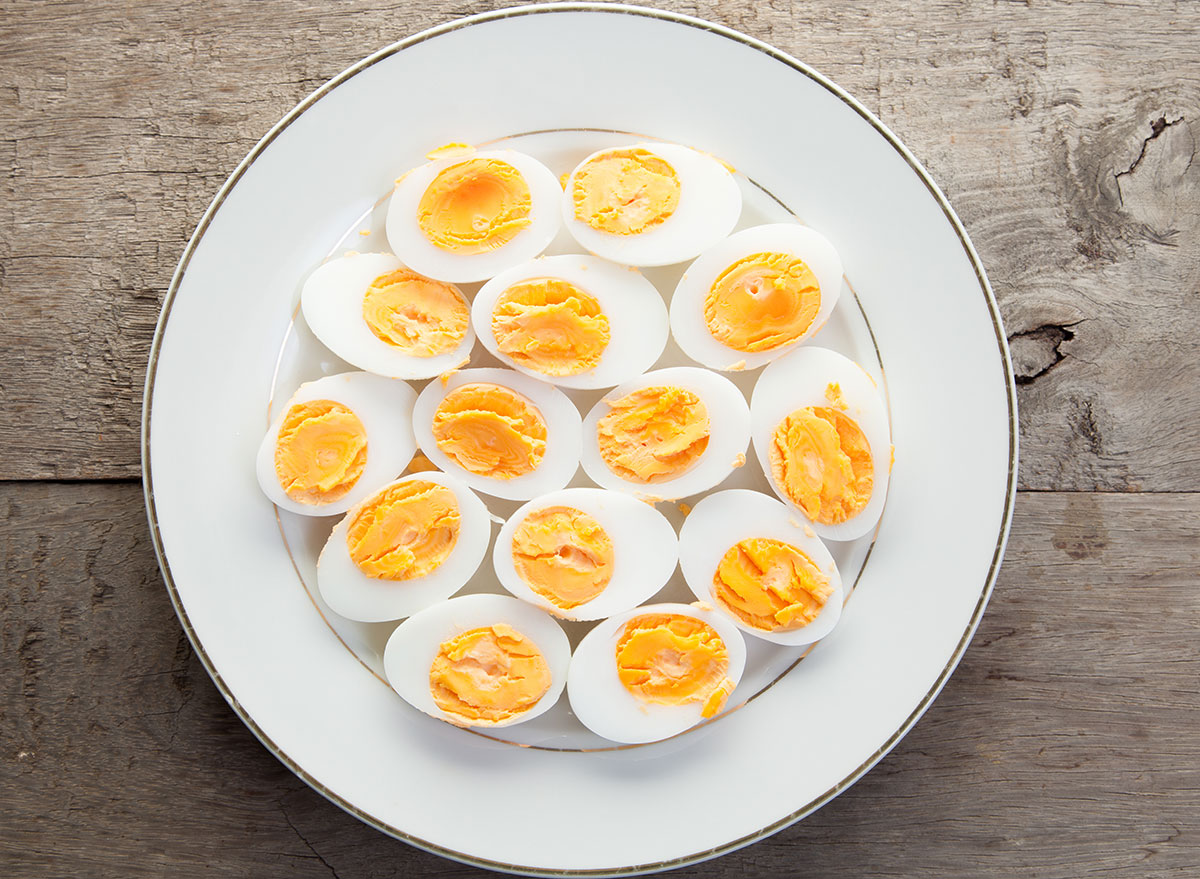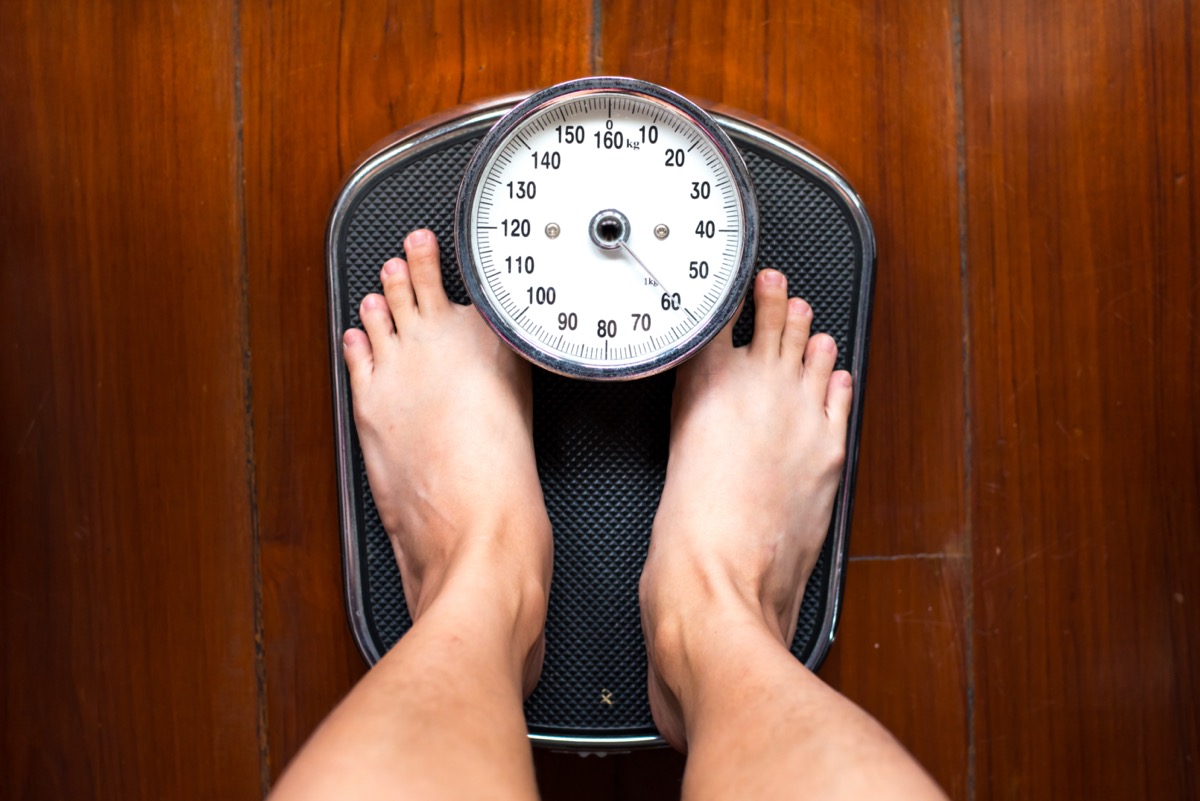15 Weight Loss Tips That Are Evidence-Based

Summer is right around the corner and there is no better time to start achieving your health and weight loss goals like the present. Maintaining a healthy BMI is more than about how you look and feel—it can help you live longer. If losing weight is on your to-do list, there are several easy lifestyle changes you can make to do so. "Your body weight is impacted by a wide variety of lifestyle factors, all of which need to be considered in order for you to succeed," explains Registered Dietitian Kimberly Gomer, Director of Nutrition at the Pritikin Longevity Center. Read on for 15 expert-endorsed weight loss tips that are evidence based—and to ensure your health and the health of others, don't miss these 19 Ways You're Ruining Your Body, Say Health Experts.
Enlist an Accountability Coach

Nona Djavid, nutrition and weight loss expert and founder of SoulScale strongly suggests the buddy approach to getting healthy. "A major factor to losing weight is to have someone—whether it be a friend, partner, or coach—hold you accountable to ensure you're on target with your goals, help you work through any hurdles and serve as a source of encouragement." She notes that while plenty of people lose weight without paying someone to hold them accountable, they didn't do it alone. "Finding someone who will push you when you're not focused and also celebrate milestones makes a huge difference."
Keep Track of Successes and Struggles

Djavid suggests keeping track of your progress on a calendar. "When you're on a mission to lose weight, it's helpful to look back and pinpoint the exact days where you felt confident and accomplished, but also mark the days where you didn't see or feel as much success," she points out. "After a month or two, take time to look back and see if you notice improvements or patterns. It can be as simple as marking an "X" on a calendar on days you exercise — it's motivating to see a chain of Xs that you won't want to break."
Create Your Own Rewards Program

Losing weight and maintaining that ideal weight is a journey and for many, can take several months. "Set up little rewards along the way to stay on the right path," suggests Djavid. "Whether it's a size goal, a weight goal or an inches goal—the trick is to reward yourself along the way. Don't use a food reward, but instead go get a massage or facial or go do a fun activity with friends."
Drink Water, All Day, Every Day

Drinking water regularly throughout the day will help keep the pounds at bay. "Drinking a glass of water can actually boost metabolism by up to 30% for the next hour," Lauren Minchen, MPH, RDN, CDN, nutrition consultant for Freshbit, the AI-driven visual diet diary app, reveals.
Reduce or Eliminate Added Sugars

Added sugar in the forms like corn syrup are associated with obesity, type 2 diabetes, and heart disease, Minchen notes. "Reducing your intake of added sugars removes empty calories, supports a healthy blood sugar and insulin level, and supports a healthy body weight," she explains.
Pay Attention to Portion Size

Exercising portion control and tracking your food intake is incredibly effective in terms of weight loss success. "Portion control helps keep total caloric intake and macronutrient balance in check, which helps support a healthy body weight. And tracking your food in a food diary can help bring awareness and mindfulness to your portions and macronutrient intake. I would recommend tracking your food and drink in Freshbit, the AI-powered food tracking app, which will track your calories, protein, carbs, and fat intake to promote nutritional balance and a healthy body weight," Minchen suggests.
Do Some Heavy Lifting

Weight lifting doesn't necessarily bulk you up. In fact, it can do the opposite. "Lifting weights/adding resistance to your workouts a few times per week will help boost metabolism for the next 24-48 hours after exercise, which means a greater daily caloric burn, a reduced body fat percentage, and a higher lean mass (muscle, bone) percentage over time," Minchen reveals.
Amp Up Your Protein Intake

Eat your way to weight loss by adding more protein to your diet. "Eating adequate protein to support weight loss (about 0.5 gram per pound of body weight) can help preserve lean body mass (muscle, bone) while boosting metabolism for a greater calorie burn around the clock," explains Minchen. It also supports satiety after meals, so you may not feel the need to snack or munch in between meals as often as you would without adequate protein intake.
RELATED: The #1 Cause of Obesity, According to Science
Stop Being a Numbers Person

The majority of dieters spend a lot of time weighing themselves and counting calories. However, Gomer says this is a mistake. "My advice is to ditch the numbers: calorie counting and the number on the scale are, not measurements of health," she maintains.
Don't Starve Yourself

If you are hungry, your diet isn't working, says Gomer. "At Pritikin we follow the number one rule for weight loss: you can't be hungry," she reveals. "This is accomplished with the supportive guidance of the Registered Dietitians, board-certified physicians, and renowned chefs at the Pritikin Center, using two easy to follow, proven eating theories: Volume Eating and Calorie Density."
Choose Sustainable, Healthy Eating Over Crash Diets

Weight loss has to be healthy, says Gomer. "We can find studies that support low carbohydrate diets as beneficial, and ones that cause weight loss. That does not mean they are sustainable or healthy for the long term. Navigating diet trends is easier when you know that evidence shows sustainable and healthy are markers of a successful weight loss eating plan."
Remember That Weight Loss is Not Just About Food

There is more to weight loss than what you eat. "The most successful way to effectively lose weight is a healthy lifestyle change that includes: enough quality sleep, exercise and physical activity, stress management, mindset, and diet," Gomer reveals. "These pillars of health all have to be in sync. We need to focus on realistic, sustainable lifestyle change that includes all of these parts, so that the end is success… and health."
Get Enough Sleep

When you don't sleep well your body is stressed, it produces cortisol (a stress hormone), and that affects the insulin response, explains Gomer. "That is why you can have a harder time losing weight when you don't sleep well."
Move Daily

People who succeed at maintaining a healthy lifestyle do three things, per Gomer: exercise most days of the week, make vegetables the star on their plate, and don't eat after dinner. Jamie Costello of the Pritikin Center, (a certified personal trainer with a Master's of Science degree in Exercise Science and Health Promotion) has some great tips to find motivation: "Focus on the moment of how great exercise makes you feel – that feeling of energy and wellness, or that 'I did it' feeling you get when you're done. Make that positive feeling the reward you are seeking when you think about exercise."
Manage Stress and Change Your Mindset

Gomer reminds that eating is a coping mechanism some use to manage stress. "It works for the short term, but we can pay a price—in our health, energy, weight gain," she points out. "The key is to find other coping mechanisms. My favorites are walking or running outside, or listening to books on tape." And to get through life at your healthiest, The Most Effective Weight Loss Diets, According to Experts.








